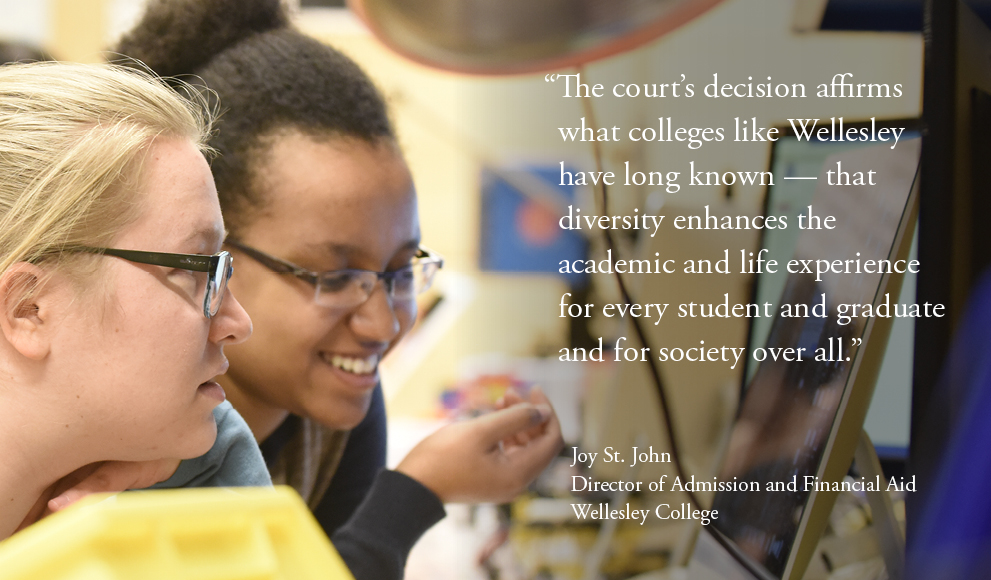Dean of Admission and Financial Aid Joy St. John Responds to Supreme Court Ruling in New York Times Opinion Pages

It was a case that had the potential to radically change the landscape of college admissions, challenging the constitutionality of race-conscious factors included as part of the university's admission review process.
Fisher v. University of Texas made it all the way to the Supreme Court and when the high court handed down its decision late last month, allowing colleges to continue to consider race in admitting students, Joy St. John, dean of admission and financial aid, added her voice to the national discussion concerning what the decision meant.
The New York Times published St. John’s comments in a special section with a roundup of letters to the editor about recent Supreme Court cases in their opinion pages. St. John’s letter was the only letter chosen that responded to Fisher v. University of Texas. She concluded, "The court's decision affirms what colleges like Wellesley have long known — that diversity enhances the academic and life experience for every student and graduate and for society overall." The full text of the New York Times letter can be found below.
St. John is a sought after voice in discussions of college admissions, diversity, and access and affordability. Reuters sought out her expertise for a major investigation they conducted about SAT test security, and WNYC’s The Takeaway later interviewed her on the topic. St. John was also cited prominently in a feature about women’s college that appeared in the May issue of Vanity Fair. She spoke to WBUR about a new college application meant to attract students who might not otherwise apply. St. John has also been cited in the Boston Globe and interviewed on NPR.
The following is the full text of St. John’s letter to the editor in the New York Times:
To the Editor:
The Fisher v. University of Texas decision ("Justices Uphold Race-Aware Admissions," front page, June 24) acknowledges the possible need for colleges to consider race, along with many other factors, in helping enroll talented students from diverse backgrounds.
The goal is more than altruistic. A diversity of viewpoints and life experiences produces better outcomes not only in the classroom, but also well into adulthood.
Multiple studies conclude that multiracial classrooms positively affect cognitive and personal development and sharpen critical thinking — for example, making students more likely to challenge stereotypes. Even employers report that the greater exposure students have to people different from themselves, the better they navigate the professional world.
The court’s decision affirms what colleges like Wellesley have long known — that diversity enhances the academic and life experience for every student and graduate and for society over all.
Joy St. John, dean of admissions and financial aid, Wellesley College
